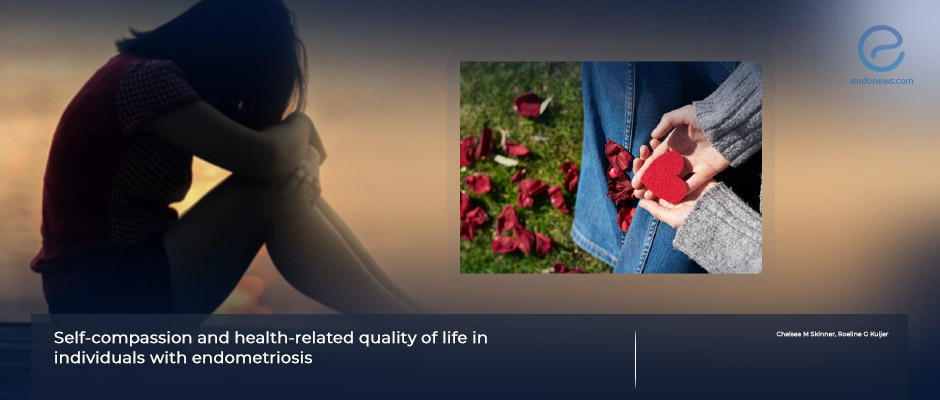Self-Compassion May Help Cope With Endometriosis
Apr 24, 2024
More research is needed to understand the potential role of self-compassion better.
Key Points
Highlights:
- The health-related quality of life of women with endometriosis is significantly impaired.
- Self-compassion and resilience may help manage the symptoms of the disease and maintain a high health-related quality of life.
Importance:
- Interventions targeting self-compassion may improve the well-being of patients with endometriosis.
What’s done here:
- Researchers analyzed the answers of 603 women with endometriosis to an online questionnaire collecting data about their demographics, the number and severity of their symptoms, health-related quality of life, self-compassion, and resilience.
Key results:
- Women with endometriosis had significant impairment in all aspects of health-related quality of life.
- Women with higher levels of self-compassion had less impairment.
- Resilience mediated the link between self-compassion, emotional well-being, and control versus powerlessness.
Limitations:
- The women who took part in the survey were recruited through social media, which may have introduced a selection bias.
- Women self-reported having endometriosis and this was not verified against medical data.
- This was a cross-sectional so it is not possible to determine causality.
- The answers were based on the last month and may not accurately reflect the effect of the disease on quality of life.
Lay Summary
The health-related quality of life of women living with endometriosis in New Zealand is “significantly impaired” confirms a new study published in the scientific journal Psychology & Health.
This result highlights the potential role of self-compassion and resilience to support positive coping styles to manage the symptoms of the disease and maintain a high health-related quality of life.
“Interventions targeting self-compassion may be a promising tool to improve well-being in individuals with endometriosis,” the authors of the study said.
It is already known that endometriosis harms health-related quality of life. However, only a few studies looked into the potential role of self-compassion and resilience as positive resources for dealing with the disease. Here, two researchers from the School of Psychology, Speech and Hearing at the University of Canterbury in Christchurch, New Zealand conducted a cross-sectional study to assess the possible link between self-compassion and health-related quality of life in people with endometriosis.
The authors analyzed the answers of a total of 603 people living with endometriosis in an online questionnaire measuring demographic information and information related to endometriosis such as the number and severity of the symptoms, health-related quality of life, self-compassion, and resilience.
The results showed that women with endometriosis had significant impairment in all aspects of health-related quality of life. Women with higher levels of self-compassion had less impairment and the perceived severity of the symptoms partially mediated this. Resilience mediated the link between self-compassion and emotional well-being, and control versus powerlessness.
“The current findings suggest that self-compassion may be a relevant area for intervention in individuals with endometriosis,” the researchers concluded, “further research is needed to determine the role that self-compassion . . . could play as a protective factor in managing the debilitating pain and other symptoms that come with endometriosis”.
Health-related quality of life is defined as a person’s perceived physical and mental health over time.
Research Source: https://pubmed.ncbi.nlm.nih.gov/38475983/
health-related quality of life endometriosis symptoms self compassion resilience

